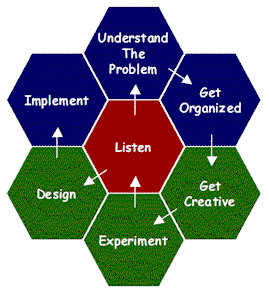 Frans Johansson’s The Medici Effect offers an encouraging recipe for engendering innovation, but it saves its most compelling message for the final few pages. Beginning with a pragmatic definition of innovation (anything that is new, valuable and realized), Johannson argues that most innovations occur in intersections (the ‘spaces’ where different disciplines, cultures or specialized domains of knowledge meet. Three factors, he says, are increasing the number of such intersections and hence the opportunities for innovation: (a) increasing human mobility, (b) scientific convergence, and (c) increasing computing power. Frans Johansson’s The Medici Effect offers an encouraging recipe for engendering innovation, but it saves its most compelling message for the final few pages. Beginning with a pragmatic definition of innovation (anything that is new, valuable and realized), Johannson argues that most innovations occur in intersections (the ‘spaces’ where different disciplines, cultures or specialized domains of knowledge meet. Three factors, he says, are increasing the number of such intersections and hence the opportunities for innovation: (a) increasing human mobility, (b) scientific convergence, and (c) increasing computing power.
Much of the book describes processes and techniques to break down the barriers that prevent us from seeing and entering intersections. These techniques include:
Johansson then explains the importance and difficulty of implementating innovations. It is critical, he says, to ‘execute past failures’, to know that no innovation will work perfectly in its first design, and be prepared to fail by being agile enough to turn failed ideas into successful ones, allowing time and resources for trial and error, and staying motivated to persevere and overcome adversity. Although this is a useful compendium of innovation-stimulating techniques and proven methodologies, I didn’t find any of the ideas in the book especially — well, innovative. But then Johansson delivered the book’s most important message: The need for innovators to be courageous. In my book Natural Enterprise I downplayed the risk of entrepreneurship and explained ways to keep this risk to a minimum. I did this to counter the popular myth that entrepreneurship is necessarily extremely risky and stressful. But Johansson has a point. It takes courage to be an innovator, which is one of the reasons so few great ideas are ever realized in the commercial marketplace. Being courageous means:
I agree with Johansson that innovators need to look for ideas in the space between disciplines, and that the opportunities for innovation have never been greater. But it is the argument for courage that makes The Medici Effect such a compelling read. I’ll have more to say on this subject in a future post. |





This looks a lot like Proof-of-Concept approaches that I’ve used when developing a new software package. One ingredient that’s missing is that people get “excited” about the ideas that end up working the best.
Dear Dave:I have several disagreemnts about our economics point of view, but our most important point of convergence its “INNOVATION”, to me the most important value of a true innovator its COURAGE… the courage to be your self, because everybody has the internal voice that is wispering to the ear…. but to the innovators this voice become a YELL.. but just the braves decide to listen it…. that is why i think that not everybody can be an innovator in the broaden sense… i mean acting everybody has great ideas but just a few ACT.CongratulationsP.S.You should include a chapter in your book about hos¿w to accept to be what you are, how to get in touch with your self to get the courage enought to leave your old live behind…to me that is where the innovation start.patadeperro@lycos.com
Taking risks is just more fun. Who wants to live a boring life anyways? Every day I work to instill a sense of adventure and limitless possibilities in my kids as I also forge my own path through a sea of conformity.Keep up the courage.
Dave,A very nice review of the Medici Effect. I think that the Medici effect scores in its superlative presentation – with powerful examples and analogies. I agree with you that being courageous is an important dimension for successful or noticeable innovation. Shall await your further perspectives on this theme.
Thanks everyone. I admit to being a bit ambivalent about writing more about the importance of courage. If I were to be honest with myself, I’d have to confess that I’m not very courageous. Even my decision to start on a second career took a year of procrastinating and stalling before I got up the nerve to do it.